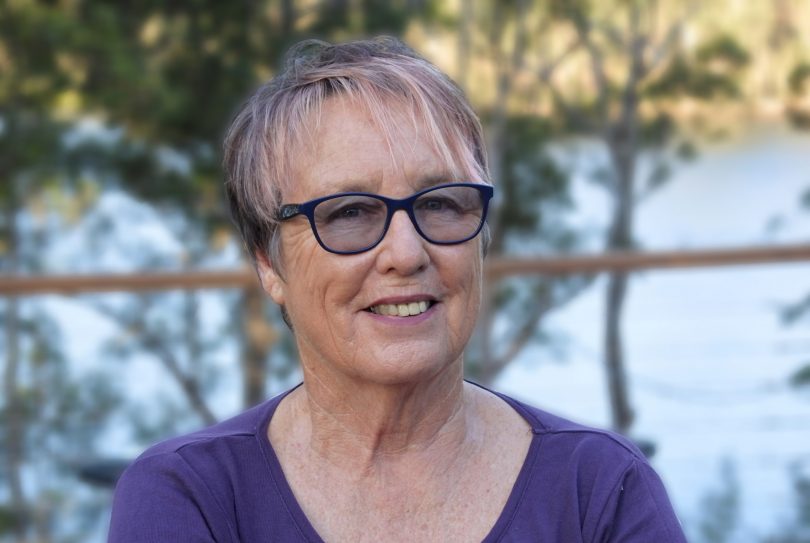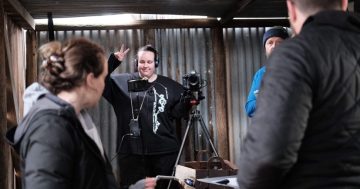
Director Robynne Murphy is a Sydney Film Festival finalist for her documentary, Women of Steel. Photo: Supplied.
Nelligen’s Robynne Murphy is one of 10 finalists in the Sydney Film Festival’s documentary category for her film, Women of Steel, which centres on the 1980-1994 campaign by Wollongong women for jobs in the BHP-AIS steelworks.
This is the second time Robynne – who is known locally for her work as a volunteer truck driver for the Nelligen Rural Fire Service – has been shortlisted for a documentary in the festival. Although the last time was in 1974, shortly before she stepped away from filmmaking to lead the women-of-steel movement.
“There are not many documentaries that are made by the people who they are about,” says Robynne, adding that she had wanted to make the film since the early 1980s but only started pulling together footage about four years ago.
The film was made with help from many volunteers and more than 500 private donations.
In 1977, newly elected NSW Premier Neville Wran introduced legislation banning discrimination on the basis of race, gender and marital status. However, despite this, Robyn says she thought the group of women would still never win their campaign, although she never thought about giving up.
“I think for anyone who sees and feels injustice, you don’t change your mind,” she says. “It continues to exist. In the end, we had 740 women in the class-action lawsuit. A lot of the women had English as a second language and we were all used to working hard. Everyone was desperate for a well-paid, secure job. We couldn’t understand why we couldn’t get jobs as steelworkers.”
Getting everyone on the same page took time and the women met frequently, often bringing their children and families along.
It was thanks to support of strong unions and the women’s determination that more than 100 women, including Robynne, were employed within nine months of beginning the campaign in 1980, she says.

From left: Wollongong steelworkers Roza Klujaricek, Slobodanka Joncevska and Fotini Voulgaris leaving work at Port Kembla steelworks. Photo: Supplied.
“Ironically, I was first employed as a second-class welder,” says Robynne with a smile.
Her career as a steelworker spanned 30 years and her jobs at the Port Kembla plant included being a welder, crane driver and hot strip mill operator.
“I chased the money – it was a proper full-time wage with shift and weekend loading,” she says. “These are all things that are now being taken away again, but at the time all of us working could really contribute to setting up our families with houses. We were paid the same as men.”
The women’s success coincided with major shifts, and a slump, in the steel industry. Workers were laid off en masse and only those with seniority were rehired when things picked up.
Again, the women rallied and won a case that claimed they were being discriminated against – had they been employed earlier, they could have had seniority.
Although Robynne has been retired for 12 years, she continues to pave the way for women to break into traditionally male arenas through her role with the NSW Rural Fire Service, working through the 2019-2020 bushfire season and, miraculously, still managing to finish making Women of Steel.
The film will be screened online from June 10– 21 on the Sydney Film Festival website. Tickets are $14 and discounts for groups of 10 are available.
Check out the Women of Steel trailer here.
Original Article published by Elka Wood on About Regional.
















